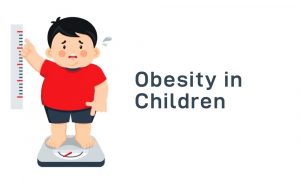Whether we talk about it openly or not, people are judged because of their weight. And this isn’t just about rude comments or looks; it’s deeper than that. It affects their mental health, confidence, and overall well-being.
Think about someone who has been trying to lose weight for years—trying every new diet, putting in hours at the gym, yet they feel judged wherever they go.
This feeling doesn’t just end with the day; it’s something they carry with them. Let’s dive into how these judgments affect people on the inside.
Living with Constant Stress and Worry
Imagine walking into a coffee shop or gym and feeling like every eye is on you. You might think, “They’re judging me… they probably think I don’t care about my health.”
This pressure doesn’t just go away. It builds up over time, creating a cycle of stress and worry, making it harder to feel comfortable in your own skin.
Studies show that people who face constant weight-related stress are over 30% more likely to struggle with anxiety and depression.
That’s more than just a number; it’s real people feeling stuck in a loop of worry, guilt, and self-doubt.
Self-Esteem Takes a Big Hit
When people keep hearing negative comments, they start to believe them. They might think, “Maybe I am lazy… maybe I don’t have enough self-control.”
This kind of thinking plays over and over in their heads, shaping how they see themselves.
This self-doubt chips away at self-worth. When people start to believe they aren’t “good enough,” it affects everything—from how they care for themselves to how they show up in life.
Pulling Away from Friends, Family, and the World
We’ve all heard the advice, “Don’t worry about what others think,” but that’s easier said than done. To avoid feeling judged, many people start turning down social invites.
They might choose to stay home rather than risk hearing certain comments or seeing certain looks.
Friends invite them out, but they decline because they don’t want to feel out of place. Even family gatherings can feel uncomfortable with comments like, “Are you sure you need that second helping?”
This social withdrawal means missing out on life’s moments and losing connections with people who care. And when connection is missing, mental health can really suffer.
Turning to Food for Comfort
With all the stress and judgment piling up, food can become a comfort. Junk food, in particular, can offer temporary relief, helping people feel a sense of peace—even if just for a few minutes.
For some, eating becomes the only time they feel okay, leading to emotional eating. And when life feels out of control, food becomes a reliable comfort, even though it can lead to weight gain. This, in turn, leads to more judgment, and the cycle goes on.
Avoiding Exercise Due to Fear of Judgment
For people who feel judged because of their weight, going to the gym can be a huge challenge. They worry about others staring or hearing awkward comments.
So, they end up skipping exercise altogether. Regular movement is great for stress, mood, and health, but the fear of judgment keeps many away.
And without regular exercise, the body starts to feel sluggish, which can lead to more weight gain and more mental fog. So, the cycle continues.
Putting Off Doctor Visits and Missing Out on Care
Weight-related health issues like back pain, knee pain, or even sleep problems can creep in over time. But when people finally go to the doctor, the first advice is often, “You should lose weight.”
It’s not that simple, though, and this advice can feel dismissive, especially if they’re seeking help for something specific. Many people skip doctor visits to avoid feeling judged, which means they miss out on care that could genuinely help them.
How Constant Stress Affects the Body
Negative emotions like worry, guilt, and stress don’t just impact the mind; they affect the body, too. Research shows that stress can increase cortisol, a hormone linked to weight gain, especially around the belly.
Over time, high cortisol levels can also lead to issues like high blood pressure and heart problems. So, it’s not just mental; it’s physical, making weight management even harder.
Breaking the Cycle: Changing How We Talk About Weight
Judgment about weight isn’t just about “hurt feelings.” It can seriously affect both mental and physical health. We need to understand that weight issues are complex. They’re influenced by things like genetics, hormones, and environment—not just “self-control.”
By changing how we talk about weight, we can help people feel supported instead of shamed. The focus should be on health, not appearance.
This isn’t about ignoring health goals; it’s about creating a world where people feel encouraged, not judged, to pursue them. When we focus on well-being rather than looks, we make space for real, positive change.
Let’s move from judgment to acceptance, from blame to support. Because everyone deserves to feel good in their own skin.

 Obesity in children is a rising issue in India, with projections showing that over 27 million Indian children will be obese by 2030, making up one in ten obese children globally.
Obesity in children is a rising issue in India, with projections showing that over 27 million Indian children will be obese by 2030, making up one in ten obese children globally. 